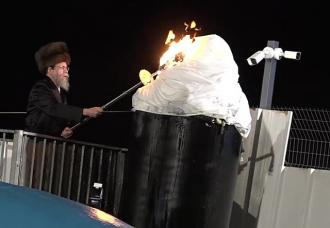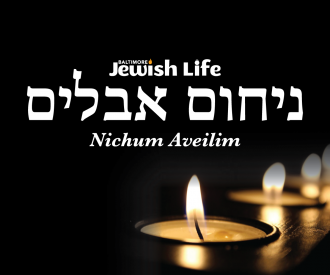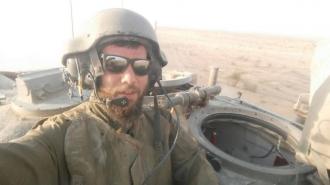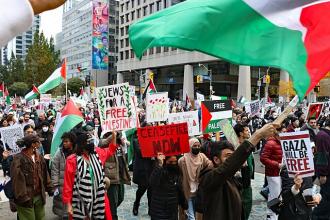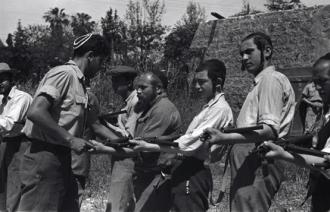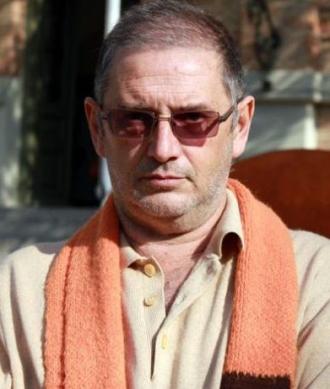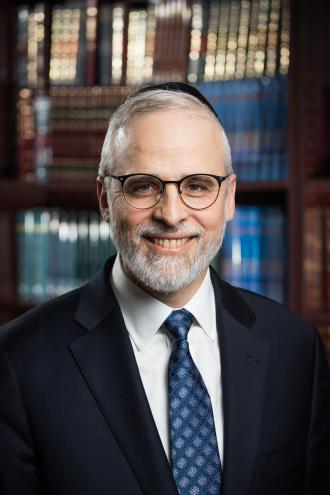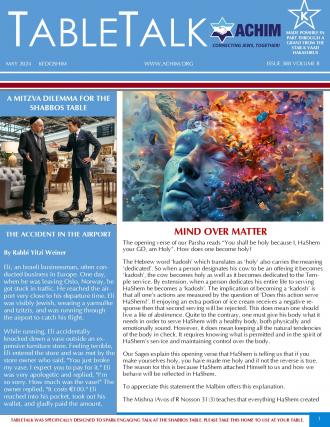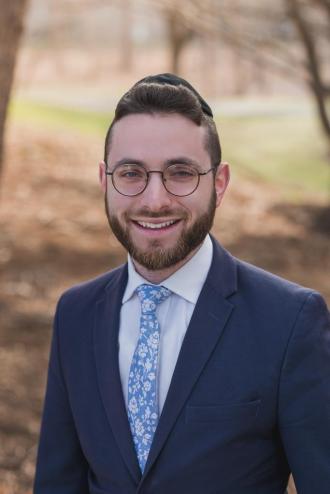At the End of the Day; In Memoriam. My Rebbi R' Yechiel Perr, Z'TL
I had the privilidge to learn Torah from some incredible Torah giants in my life – men who knew far more than I ever hoped too. And while I can point to a Mesechta, a mussar or a halachic discourse which sticks out from virtually all of them, some 35 years later, there are a few I still called “Rebbi” up to today. One of them was my Rosh Yeshiva in Far Rockaway, R' Yechiel Perr Z'TL.. My Rebbi returned his Neshama to the Olam HaEmes a few days ago. BDE. For the thousands of his Talmidim, past and present, the loss is unfathomable.
Rabbi Perr did far more than teach us Torah. He taught us what it meant to be a Yid, how a Jew lives and conducts himself and most of all the guiding principals which showed us the light in the dark – the flashlights, indeed the floodlights of Emes and Yashrus.
As part of the Smicha Chabura at YFR, the Rosh Yeshiva reserved 90 minutes a week to talk to the six of us who hoped to one day earn Smicha from the Yeshiva. His teachings were often not in the pages of the Shulchan Orech, the Shach or the Taz. They were often about Inyanei D'yoma, the happenings of the times. You see, my Rebbi did not believe that you were qualified to be a Rabbi simply because you mastered halachic concepts in Basar V'Cholov, Ta'aruvos or Hechsher keilim. As one example, Rebbi demanded that the boys who he would accept into the Smicha Chabura must first take a B'china on three entire Mesechtas from Talmud Bavli, B'Iyun. They could be any three Mesectas except those that were shorter than twenty five Blatt. I asked him why that was a prerequisite to being accepted into the Chabura and his answer was quite simple. I'm not giving Smicha to an Am Haaretz, you have to know how to learn!
And How to live. I made it a point to return to Far Rockaway each year for the annual dinner for the first fifteen years after I was married. Yes, I wanted to show my Hakaras Hatov to the Yeshiva but more it was for the warm greeting, the enthusiastic hug I would always get from my Rebbi. What a Chizuk! Of his thousands of Talmidim, fifteen years later I was always greeted by name and something specific he had recently heard about what I was up to. There was no greater way to always remind me how much he cared about every Talmid. As the years went on it was difficult to get to Far Rockaway each year from Baltimore for the dinner so on the years I did not go I began placing ads in the dinner journal as a poor substitute for actual attendance, but it was something. As the milestone of the Fiftieth anniversary dinner of the Yeshiva approached, I was determined that this was one year where we were going to again make the trip. The week arrived and on Wednesday I was in my office immersed in quite a busy day when another phone call came ringing in. My secretary picked up and after a brief pause she called into my office and said “there is a Rabbi Perr on the phone for you”. I quickly separated my thoughts from where they had been and picked up the phone and said “Shalom Aleichem”. The voice on the other end boomed out and said “R' Dovid, this is Yechiel Perr”. I warmly greeted the Rosh Yeshiva who at that time I had not personally spoken to in over a year and a half. And then, I listened. Rebbi went on to tell me how “touched” he was to see my name on the guest list for the upcoming dinner. After all it had been more than thirty years since I learned in the Yeshiva and “to know that I still felt a Kesher to the Yeshiva was so meaningful to him.” Wow, was that the Kittel calling the Yom Naarayim Peroches white. To know that I was still on the Rosh Yeshiva's radar was far more meaningful to me.
Rebbi knew that I was coming up in a few days to attend the dinner but he took time out to call me personally and tell me how much it meant to him that I was coming. An act which Dale Carnegie would have admired. And then the evening came. I arrived at the hall a few minutes before the dinners scheduled start hoping to catch a few moments with my Rebbi before the inevitable crowd arrived. The Rosh Yeshiva was sitting on a chair, greeting guests as they arrived and after a short wait, I was at the front. “R' Dovid! I'm so touched that you are here!” We exchanged an embrace and the Rosh Yeshiva went on to tell me several things he had heard about me recently which made him so very proud to count me among his Talmidim. I was not sure how he had heard these things – some of them were certainly not public knowledge, but he knew about them. In my false modesty I expressed that the things he had heard were somewhat exaggerated but nevertheless that I tried to put into action the lessons I had learned from him all those years ago. He kissed me on my cheek, gave me a bracha and said “you did way more than learn, you are now teaching it to others”. The exchange still brings tears to my eyes to this day. This was someone who I wanted to be proud of me, precisely since he had such a major role in the person I became.
But let's rewind a little bit to get some small glimpses into what made me appreciate the greatness of my Rebbi. The year was 1988 and I was working very hard on Yoreh Deia. Thursday afternoon came and I closed my Shulchan Orech to attend the Rosh Yeshiva's “Smicha Shmooz”. The six of us were there and when Rebbi entered the room it was quite clear he was deeply upset about something. He had with him a single magazine which he placed down on the desk in front of him. The Jewish Observer. Rebbi began by showing us a six page article in the Jewish Observer “without a single advertisement” designed with one headline – the inadequacy of one of the major national Hechsherim. The story went on to recount the experience of a single nineteen year old “Mashgiach” employed by the Hechsher. In the article, the boy relayed how he observed a wedding hall being Kashered for an upcoming event. He was troubled by the way in which the sinks and counters had been Kashered. After all, while it may have been technically halachically sufficient, it really seemed cursory for a major Kashrus organization. “Of course while it occurred to him that we were way past the quantities for Bittul, we could have done better”. Smoke was coming out of Rebbi's ears.
This guy knows practically no Halacha yet he is going to be Motze Laz on a major Kashrus organization? And the Jewish Observer was going to run with the story? Outrage, disgust, contempt. The Rosh Yeshiva then went through how the procedures described were textbook according to Halacha and the gall of some nineteen year old kid calling it into question was just shocking. Dwarfed only by the Jewish Observers willingness to publish it. Rebbi had zero tolerance for such antics. There was right and there was wrong. Torah and Halacha were right. Yashrus was right. Emes was right.
Four months later I was called into the Rosh Yeshiva's office. News had just been leaked that one of the areas main elementary schools was going to start their own high school. This particular school was on the more modern side of the yeshivish world and many of their graduates would come to YFR for high school. It was quite realistic that if they kept their own eighth graders for high school, YFR would have their class size cut in half. A major development indeed. Rebbi greeted me warmly as always and said “Dovid, I need a favor from you. You may have heard about the new high school opening nearby. In order for the Yeshiva to continue to thrive we need to encourage more of the right wing elementary schools to not just send us some of their boys, but a much higher percentage. Currently many of those boys go out of town for high school, we want to project a more Yeshivish image so more of those parents will choose to send to YFR instead of out of town. Dovid, I am asking you to agree to wear a black velvet Yalmulka from now on”.
This was not a haphazard consideration for me. I deliberately did not wear a black velvet Yalmuka or a Kippa Seruga at that time because each was stereotyped as a certain type of person. I did not want people to make assumptions about me based on the Yalmuka I wore. I discussed this hesitancy with the Rosh Yeshiva. He looked at me quite sternly and simply said “Dovid, as the Rosh Yeshiva I could simply say this is a new rule in the Yeshiva but I am not. I am asking you as a favor. I don't want to see thirty years of building the Yeshiva go down the tubes.” I have been wearing a black velvet Yalmuka ever since. It was impossible for the Rosh Yesiva to talk down to anyone – he valued each Talmid too much. B'H, his foresight insured the Yeshiva would continue to grow at an accelerated rate over the next 20 years. Rebbi was incapable of uttering an excuse or inaccurate explanation of anything. It was always plain simple Emes.
I could go on for much longer detailing how Rebbi was Machshav every Talmid, how every decision, indeed every word which came out of his mouth reflected and indeed imparted the need to always be Yosher and an Ish Emes. My discussions with Rebbi while in the Yeshiva were from issues of learning, Hashkafa, dating and so much more. Yet his beacons always were front and center in every discussion. Emes and Yashrus. The greatest example a Rebbi could ever set. I hope every day that I in some part can emulate his example.

